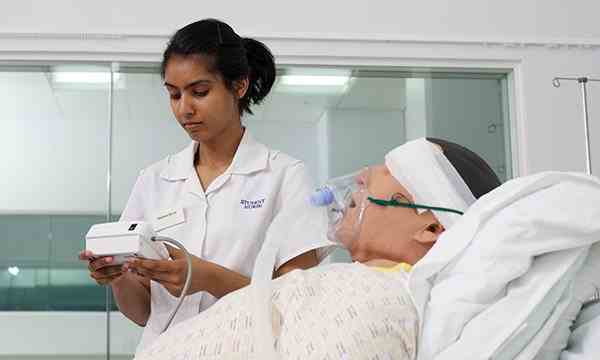Indians are driving a rise in foreign nurses coming in to boost the workforce of the UK’s National Health Service, according to official figures released in London on Wednesday.
The Nursing and Midwifery Council (NMC) data for 2021-22 show 37,815 Indian nurses on the council’s register of those qualified to work in the UK, up from 28,192 the previous year and a jump from 17,730 four years ago. The Philippines remains the top-most source country with 41,090 nurses and Nigeria is third with 7,256 nurses on the register.
“Our register is at the highest level ever. This is good news considering all the
pressures of the last two years. But a closer look at our data reveal some warning signs,” said Andrea Sutcliffe, chief executive and registrar at the NMC.
“The total number of people leaving the register has risen, after a steady and welcome fall over the previous four years. Those who left shared troubling stories about the pressure they’ve had to bear during the pandemic. A focus on retention as well as attracting new recruits need to be part of a sustainable workforce plan to meet rising demands for health and care services,” she said.
In total, there were 48,436 joiners, up from 34,517 the previous year and 38,317 in 2019-2020, which was seen as a welcome sign for the health service coping with nursing staff shortages.
The NMC found that of all the joiners almost half (48 per cent) had trained overseas and of those, 66 per cent had trained in India or the Philippines. This means growth of the UK nursing and midwifery workforce has become more reliant than ever on internationally trained professionals joining the register, the NMC notes.
“Another note of caution is that growth of the workforce has become more reliant on internationally trained professionals joining our register. These professionals make a welcome and vital contribution to our nation’s health and well-being. But we can’t take them for granted,” warns Sutcliffe.
The UK’s Royal College of Nursing (RCN) also called for radical action to boost the nursing workforce in a sustainable way.
“We again question how sustainable it is to recruit half of all new nurses from around the world. The UK’s health and care workforce is proudly diverse, but it must be done ethically and come at the same time as increased investment in education and domestic workers,” said Pat Cullen, RCN general secretary and chief executive.
“When we have tens of thousands of vacant nurse jobs, a sharp rise in leavers should not be overlooked while we welcome new recruits. Nursing staff tell us these shortages are biting more than ever,” she said.
The UK government says the NHS follows ethical recruitment practices by not recruiting from a red list of countries, which have declared shortages of healthcare staff. All parts of the UK have set out plans to increase the number of nurses and midwives in the NHS, with a target to boost numbers domestically and be less reliant on foreign staff.










